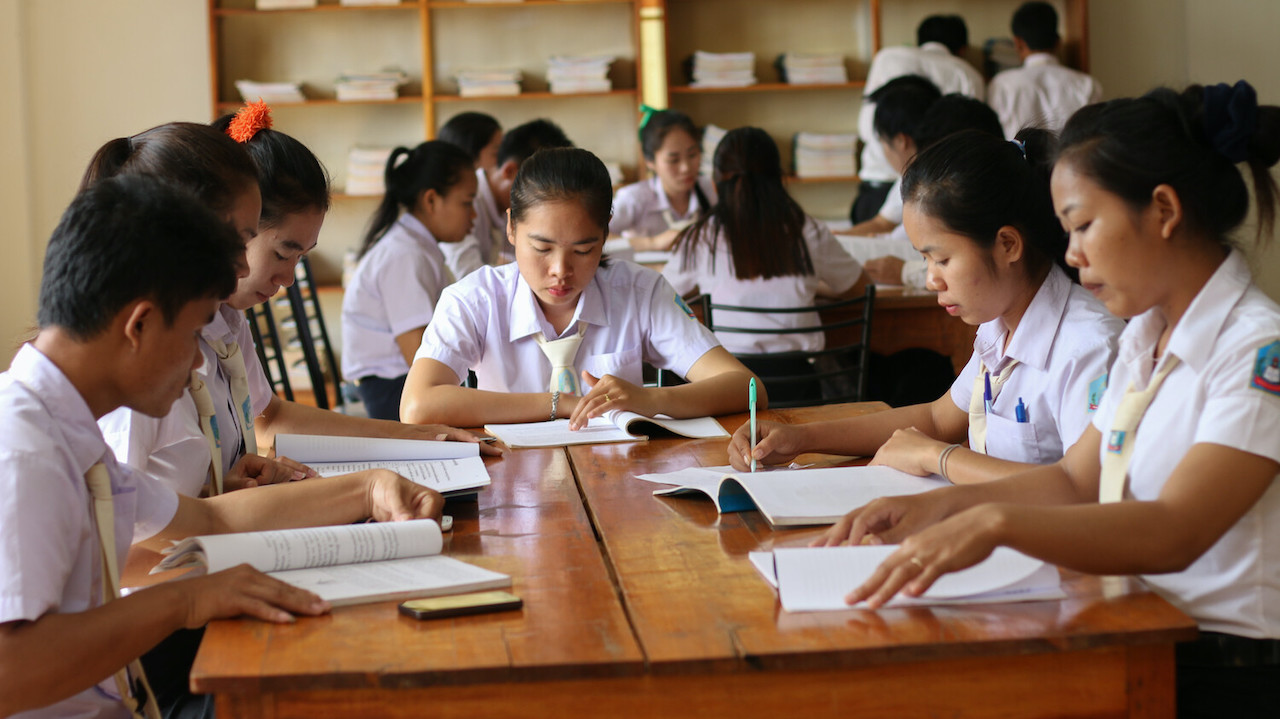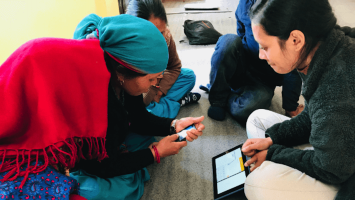
Gamification involves the use of video game elements in non-game contexts, like e-learning, to infuse play in the classroom. Photo credit: ADB.
The ADB-backed initiative aims to bridge the skills gap and raise the quality of the country’s workforce.
A program striving to give students and jobseekers in Kaysone, Lao People’s Democratic Republic (Lao PDR) a better chance at finding work is deploying gamification and other e-learning tools to keep learners engaged and motivated.
The Asian Development Bank (ADB) and the Government of Australia, through the ASEAN Australia Smart Cities Trust Fund (AASCTF) is working with Kaysone to develop the smart learning and employment service platform, which capitalizes on digital solutions like gamification and various e-learning modules. Gamification involves the use of video game elements in non-game contexts, like e-learning, to infuse play in the classroom.
Bridging the skills gap
Before the pandemic, Lao PDR has been able to sustain high economic growth rate thanks to the resource sector, particularly mining, timber extraction, and hydropower. To grow further and attract foreign investments, it needs a skilled workforce.
However, skills gap continues to be a key constraint in doing business in Lao PDR, according to an ADB report.
The overall quality of the workforce, and student completion rates in upper secondary education, higher education, and technical and vocational education and training (TVET) should be improved to meet labor market demands, the report notes.
Phanomkone Daralasmy, vice-director at the Savan-Seno Special Economic Zone (SSEZ) in Kaysone, says it has been “very challenging to train people with limited facilities and meet the high requirement of the firms in the SSEZ.” While there are training centers, he adds, these are of moderate standards and unlike those found in neighboring countries.
Digital tools for a quality workforce
The smart learning platform considers the concerns of the government, private sector, and academia in Kaysone, and was conceptualized with their inputs to bridge the skills gap, as well as create a more formal urban employment landscape that can help attract foreign investments.
“We know that the students lack practical skills,” says Sitha Khemmarath, associate professor and vice-president at Savannakhet University. “This project will help develop on-boarding tools for students.”
Applying gaming in e-learning can help engage potential and new employees. It can provide a virtual tour of the work environment to give future employees a sense of familiarity about their new job and allow employers to minimize the time needed to orient new hires.
The project proponents plan to develop a simple and user-friendly interactive web-based platform to gain more support from companies and attract young job seekers and graduates.
Students and jobseekers will be able to learn essential skills such as communication, time management, critical thinking, goal-setting, conflict and risk management, and problem solving, among others.
The platform is currently at the pre-feasibility stage.
Bright careers ahead
Aside from developing the smart learning platform concept and sample e-learning modules, the AASCTF project included a needs assessment and a viability and sustainability analysis. The project is expected to be further refined and potentially undertaken as an ADB investment.
AASCTF, which is part of ADB’s Urban Financing Partnership Facility and also under the Southeast Asia Urban Services Facility regional technical assistance, provided $97,575 to the project.
Some students at Savannakhet University already see the smart learning platform as a means to start their careers. “The project will help us get prepared for employment, to know and understand what the job requirements are,” says Pheutsaphar.
Palita, a fellow university student, agrees. “I think this project will make looking for a job easier, helping us become more prepared and more confident in ourselves.”


